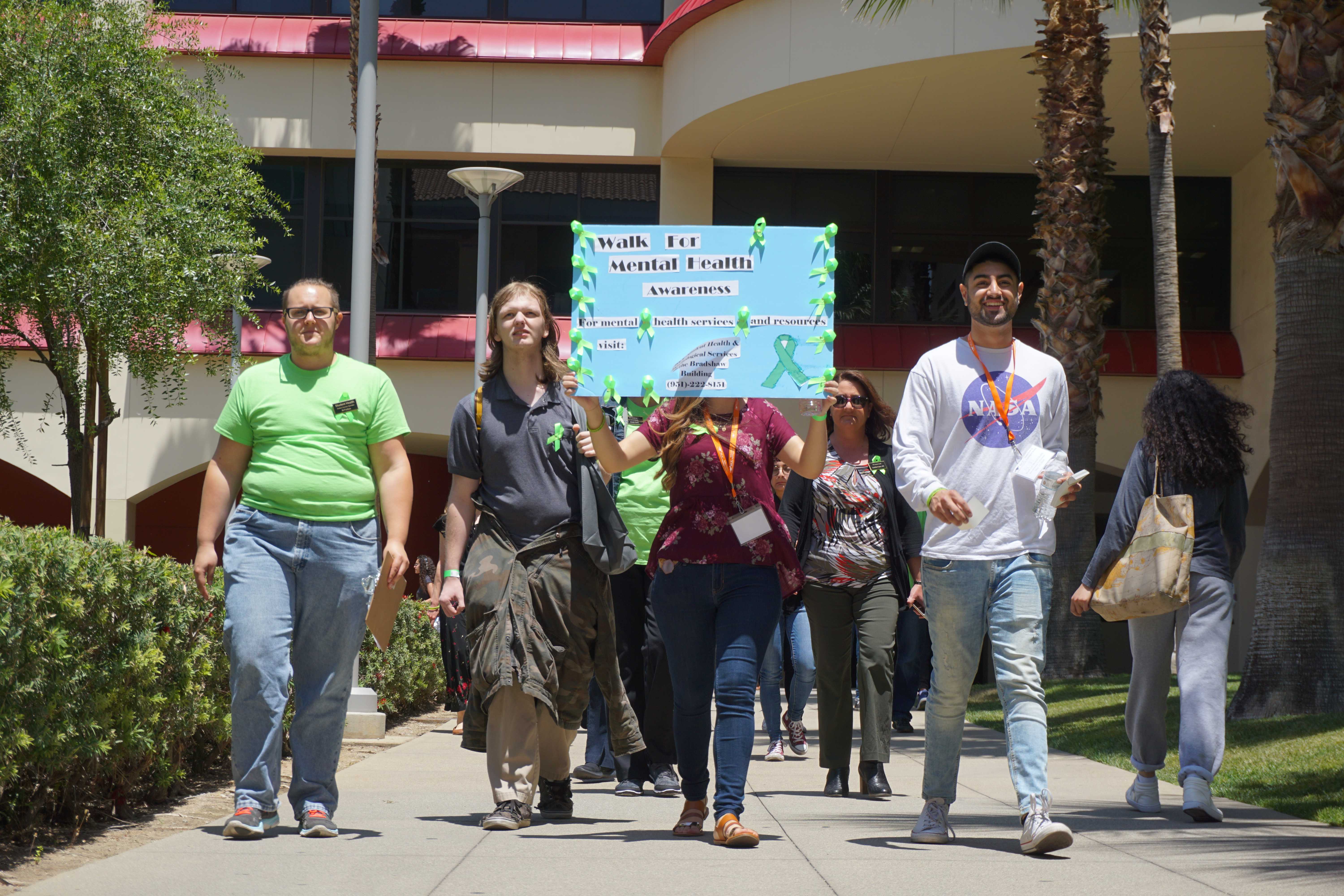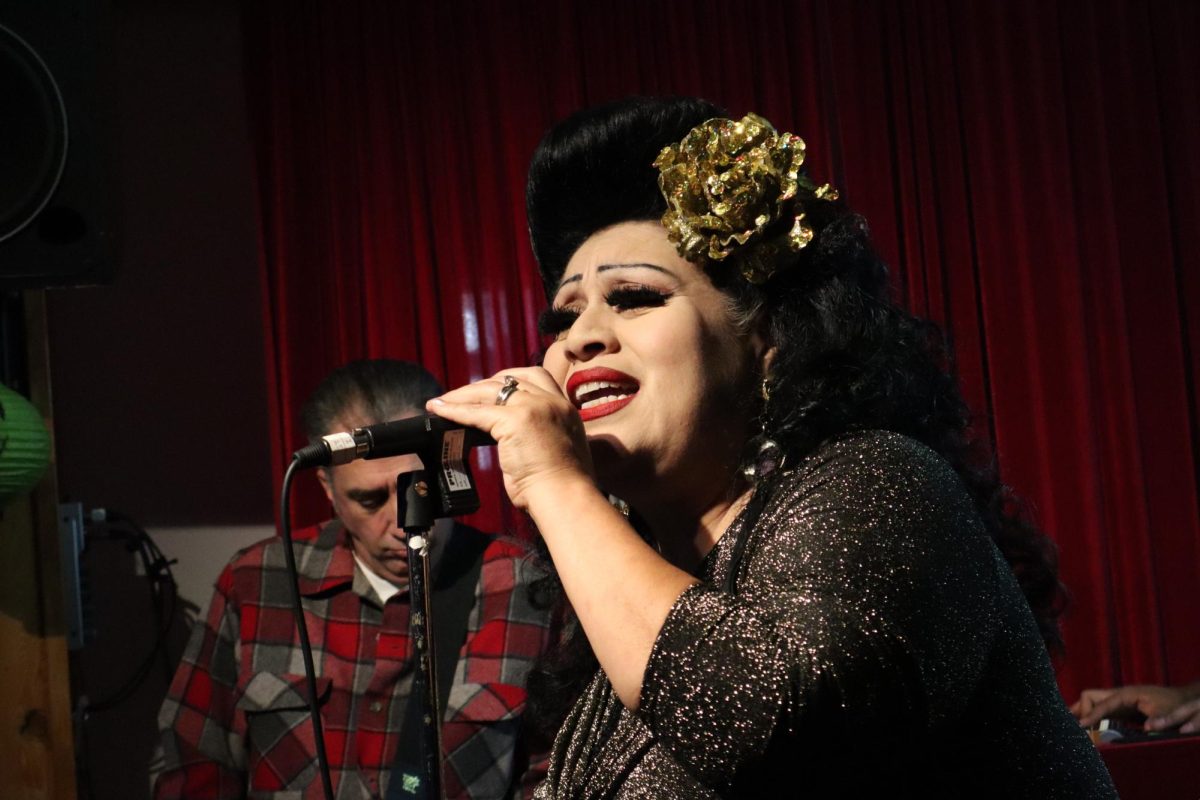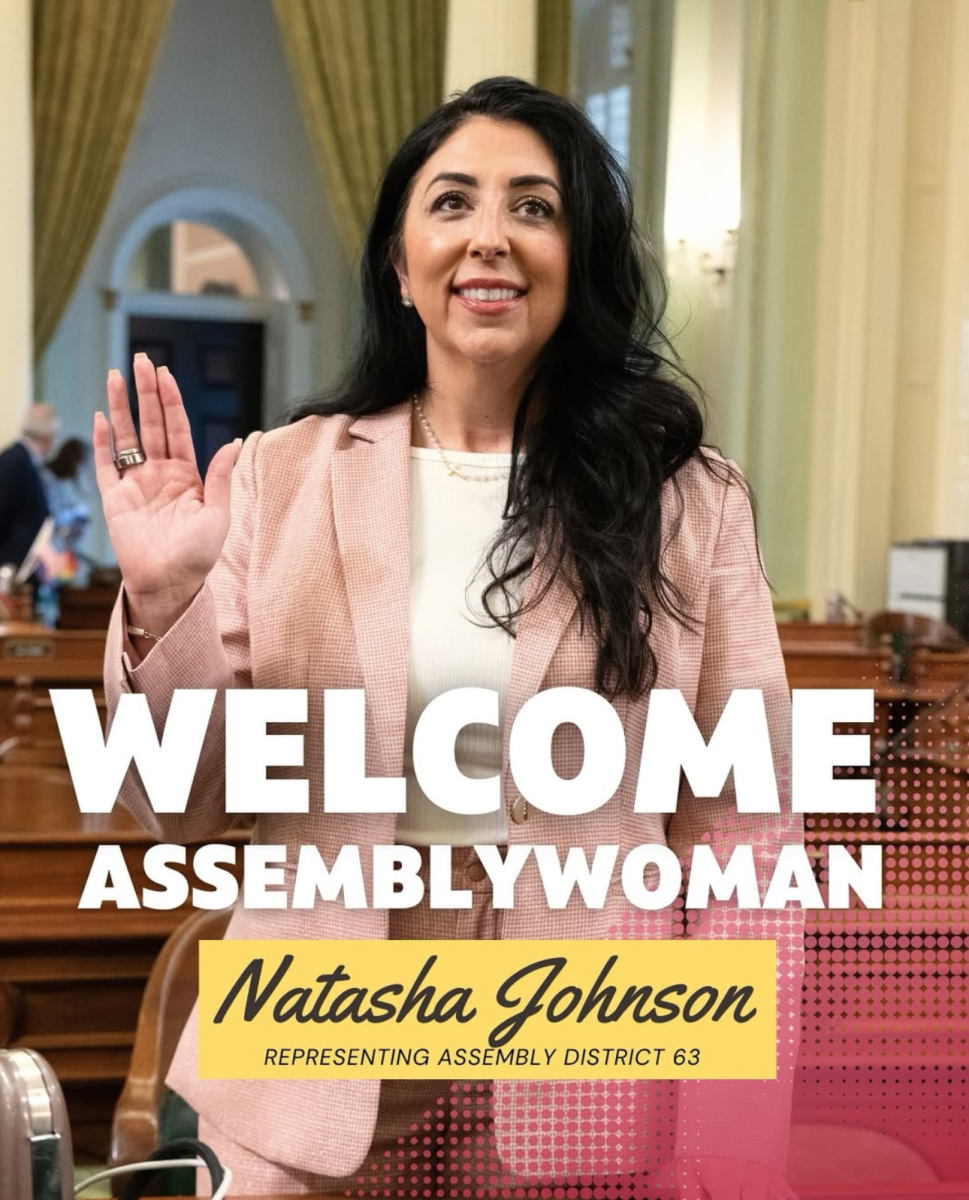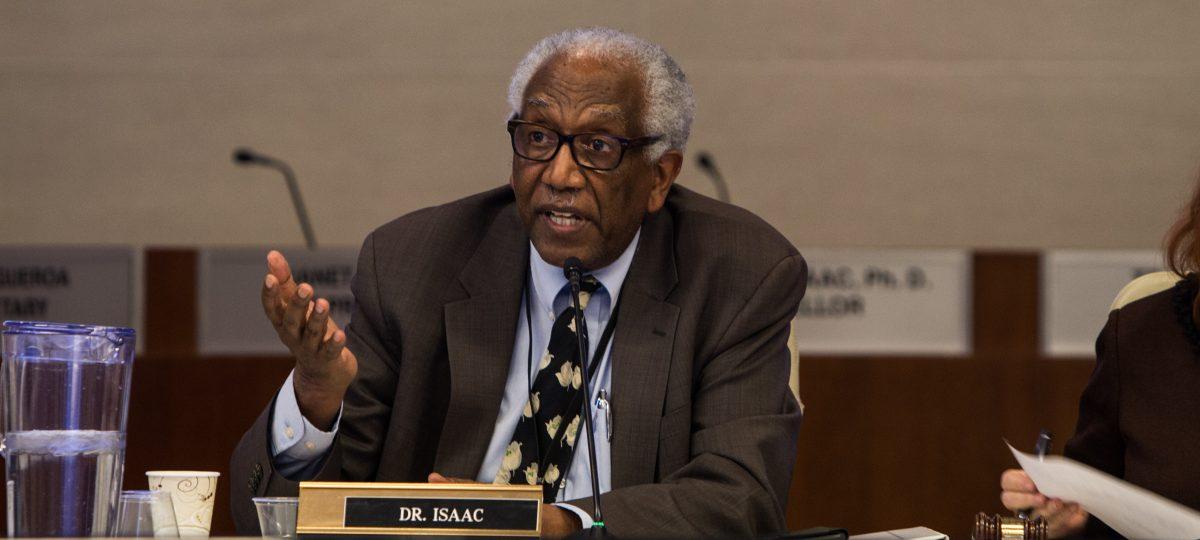By Joshua Burciaga

Participants wore green wristbands and ribbons symbolizing that people with a mental health diagnosis can still live a full and healthy life.
Kevin Wurtz, mental health supervisor for the Student Health and Psychological Services, hopes that the walk will show that mental health affects many students.
After the walk, participants gathered in the Ralph H. Bradshaw Student Center where they saw short films depicting different mental illnesses.
One film discussed how marginalized communities rarely talk about mental health, a message that particularly resonated with RCC student Alexa Vazquez.
“Latino households don’t talk at all about mental illness,” Vazquez said.
Vazquez described how her uncle was found dead and that police ruled his death as a suicide. However, friends and family members rejected the cause of death.
“They were like, ‘Oh no, that would be the last possible resort. He was killed, somebody killed him,’ and I think (they) just have to look at the bigger picture and see that he wasn’t OK,” Vazquez said.
RCC student Madeline Norris suffered from depression and anxiety at an early age but her parents and her teachers refused to acknowledge her condition.
She explains that she wasn’t able to receive help until she suffered from a mental breakdown at the age of 16. Norris promptly filed an appointment on her own to see a therapist.
“I finally knew something is wrong with me and someone was finally there to help me,” Norris said.
Guest speaker Maria D. Algarin said that most parents don’t know how to treat children with mental health illnesses.
“We don’t get books on how to raise somebody. I didn’t get that book on how to raise my son with schizophrenia,” Algarin said.
She explains that mental health issues are ignored in diverse communities and how this affected her ability to care for her son.
“He came home and he told me that he needed to see a psychiatrist,” Algarin said. “I’m hispanic. We don’t have psychiatrists in our family.”
Her son sought help by himself and Algarin received a call the next day from a nurse telling her that he has has a chemical imbalance and needs medication.
“I was so blessed that my son had the courage to do that because I hear kids every single day not say anything, struggling, their families not believing them, again because families don’t know,” Algarin said.
She encourages the audience to speak with professionals who can help and reminded them that recovery is possible.












